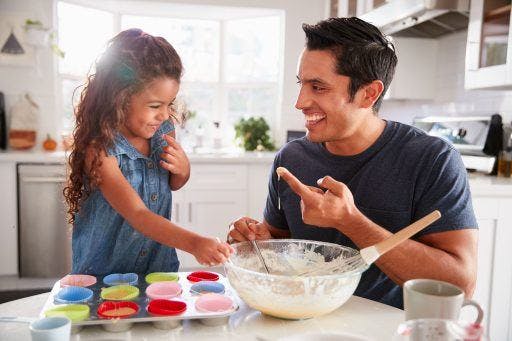Dating takes on a different meaning when you become a parent. Gone are the carefree rendezvous of your younger years, replaced by earlier curfews, less spontaneity, and the occasional diaper change. But the rewards are infinitely more promising: fewer uncertainties, deeper connections, and a love that knows no bounds. Are you ready to plan heartwarming experiences and create lifelong memories with your brood? Here are wholesome date ideas for your next parent-child bonding.
Why You Should Invest in Parent-Child Dates
Early childhood, from birth to age eight, is a period of rapid brain and body development. According to the American Academy of Pediatrics (AAP), the experiences and opportunities during this time “lay the foundation for how children grow, learn, build relationships, and prepare for school.” UNICEF affirms this and underscores how these first few years “shape the trajectory of a child’s holistic development and build a foundation for their future.”
The London Journal of Primary Care adds: “Without a good initial bond, children are less likely to grow up to become happy, independent, and resilient adults.” Studies have also revealed how neglect, parental inconsistency, and a lack of love result in long-term mental health problems and reduced overall potential.
Thus, it is essential to establish a responsive and supportive environment where your child lives, learns, and loves fully. To make this happen, choose date ideas that usher in the following development aspects:
- Physical
- Emotional
- Social
- Intellectual
Family Date Ideas That Promote Child Development
Take your pick from these engaging date activities that promote physical, emotional, social, and intellectual development.
Date ideas for your child’s physical development

Do you want to help your child improve their motor skills? Go for healthy habits that teach them how to use their bodies effectively. These date activities maximise the potential of their muscles and encourage regular movement.
- Fly kites: Start by designing the kites yourself, then head out and watch them soar.
- Dance: Scan your favourite networking site for the latest dance craze, learn the steps together, and practise in front of a mirror.
- Play sports: Did you have a favourite sport growing up? Take this chance to teach your child the essential skills to win the game.
- Go on a hike: Immerse in nature, test your endurance, and learn to balance by going on nature hikes or forest trails.
- Set up an obstacle course: Stuck at home but still want to move your muscles? Set up an obstacle course around the house and see who gets to the finish line fastest.
Date ideas for children’s emotional development

Help your child identify, manage, and express their emotions. You should support them and make them understand why they feel happy, angry, or disappointed. The following date ideas aid in establishing an emotional foundation they can bring to adulthood.
- Go to a library: Books teach kids about handling different situations and recognising their emotions. This date idea also makes them understand and accept that not all stories have a happy ending.
- Make art: Drawing, painting, or colouring allows children to express their feelings effectively and creatively.
- Play emotional charades: This is like playing the usual charades, but you act out different feelings and emotions. The activity will teach your child how to name their emotions.
- Watch a movie: Here’s a family date night idea that can double as a reward. Schedule a movie showing at home and watch kid-friendly films that teach about emotions, like Inside Out or Dumbo.
- Meditate outdoors: Head to a quiet place, roll out a mat, and practise meditative breathing exercises. This activity brings your child closer to their core so they can better understand their feelings.
Date ideas for your youngster’s social development

The goal of these bonding activities is to make your child comfortable in various social settings. You want to teach them about forming and maintaining relationships with people inside and outside their immediate circle. These date ideas also help them understand their role in the family and community.
- Sing and play music: Try singing in front of the family and learning to play musical instruments to teach kids about cooperating and supporting others.
- Attend festivals and cultural events: According to a Tourism Management study, taking immersive trips to festivals facilitates collective memory creation and familial bonding. It also creates thick sociality or “we-relationships”.
- Volunteer in your community: Participate in activities like soup kitchens or beach cleanups where kids can meet new people.
- Plan a scavenger hunt: Here, your child can practise how to lead and follow, work towards a goal, and make collective decisions.
- Picnic in the park: Invite your kid’s cousins or schoolmates and their guardians for a picnic to foster social interaction.
Date ideas for your kid’s intellectual development

Support learning from an early age with activities that exercise your child’s brain power. You want your kid to grow up curious and excited to learn new things and not back down when the situation becomes challenging. Learn from these date ideas that don’t require being in a classroom.
- Cook or bake kid-friendly recipes: Troop to the kitchen and start naming ingredients (and their sources!), counting, measuring, and learning some science.
- Visit a zoo: Observing animals and learning about different species will teach your child about the world’s diversity. It might even lead them to discover man’s role in the ecosystem.
- Watch the sky: Head to your backyard, look at the stars, and talk about constellations, planets, and space. Go all out with binoculars or telescopes!
- Conduct science experiments: Teach your kid how things work by conducting simple experiments using household materials.
- Assemble jigsaw puzzles: Looking for a quiet family date night idea to do at home? Get a thousand-piece puzzle and assemble it with your kids.
Teaching Confidence at an Early Age
It’s never too early to empower your children with the confidence they need to navigate an increasingly complex world. According to the AAP, children can develop this essential trait “within a home, when parents and children interact in a supportive manner and share unconditional love.”
Going out on a date can work wonders for your child’s self-esteem, preparing them for the challenges of their teenage years and beyond. You can also consider exposing them to new experiences early on to demystify fears. For example, bring them along on your next dental appointment. Show them that orthodontic treatments, such as ClearClorrect aligners, are necessary to improve their overall oral health and contribute to a confident smile.
Besides fostering confidence, bonding with your kids nurtures resiliency, honesty, generosity, and many other positive traits. So, what are you waiting for? Take your pick from these wholesome date ideas and block out your calendar for one memorable experience this weekend!
References:
Bunker, L. K. (1991). The Role of Play and Motor Skill Development in Building Children’s Self-Confidence and Self-Esteem. Elementary School Journal, 91(5), 467–471.
Early childhood development. (n.d.). UNICEF.
Jepson, A. D., Stadler, R., & Spencer, N. (2019). Making positive family memories together and improving quality-of-life through thick sociality and bonding at local community festivals and events. Tourism Management, 75, 34–50.
Kleitman, S., & Moscrop, T. (2010). Self-Confidence and Academic Achievements in Primary-School Children: Their Relationships and Links to Parental Bonds, Intelligence, Age, and Gender. In Springer eBooks (pp. 293–326).
Milteer, R. M., & Ginsburg, K. R. (2012). The Importance of Play in Promoting Healthy Child Development and Maintaining Strong Parent-Child Bond: Focus on Children in Poverty. Pediatrics, 129(1), e204–e213.
What is early childhood? – Center for High Impact Philanthropy. (2020, August 10). Center for High Impact Philanthropy – University of Pennsylvania.
WHAT IS EARLY CHILDHOOD EDUCATION. (2022, February 15). Details.
Winston, R., & Chicot, R. (2016). The importance of early bonding on the long-term mental health and resilience of children. London Journal of Primary Care, 8(1), 12–14.



